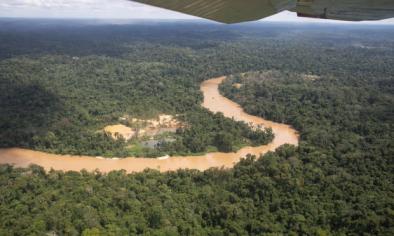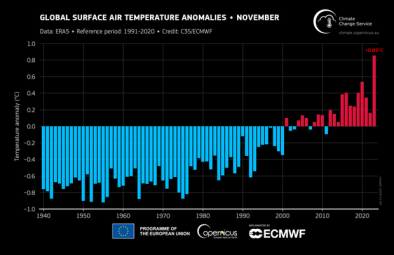Science Source
Expansion of oil palm and other cash crops causes an increase of the land surface temperature in the Jambi province in Indonesia
- Quantifies the impacts of land transformation on the LST in Indonesia for the first time
- Analyzes LST from the thermal band of a Landsat image and produce a high-resolution surface temperature map (30 m) for the lowlands of the Jambi province in Sumatra (Indonesia), a region which suffered large land transformation towards oil palm and other cash crops over the past decades
- Compares LST, albedo, normalized differenced vegetation index (NDVI) and evapotranspiration (ET) between seven different land cover types
- Comparison shows that forests have lower surface temperatures than the other land cover types, indicating a local warming effect after forest conversion
- States that these temperature differences are explained by an evaporative cooling effect, which offsets the albedo warming effect
- Finds that average daytime surface temperature in the Jambi province increased by 1.05 °C over the last 16 years, which followed the trend of observed land cover changes and exceeded the effects of climate warming
- Provides evidence that the expansion of oil palm plantations and other cash crops leads to changes in biophysical variables, warming the land surface and thus enhancing the increase of the air temperature due to climate change
Related Content
Headline

Feb 15, 2024 | Climate Nexus Hot News
Amazon Could Reach Tipping Point By Midcentury
Headline

Jan 16, 2024 | Climate Nexus Hot News
2023 Smashes Hottest Year Record
Headline

Dec 7, 2023 | Climate Nexus Hot News
It’s Official - 2023 Is World's The Hottest Year On Record
Headline

Dec 7, 2023 | Climate Nexus Hot News
Earth Veering Closer To Dangerous Tipping Points


